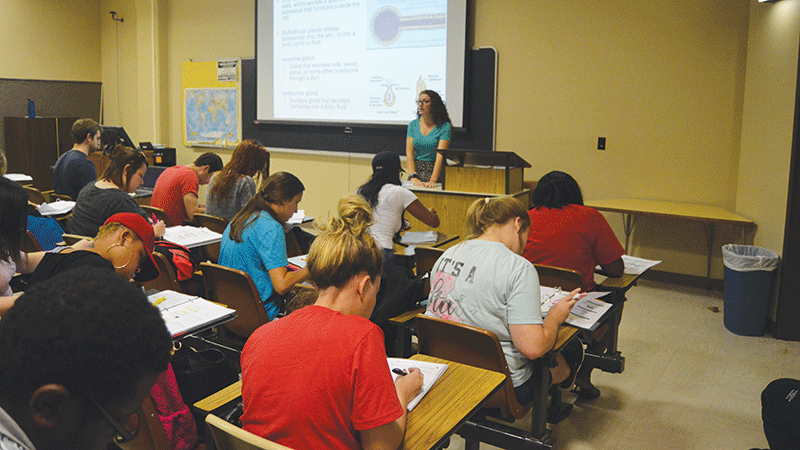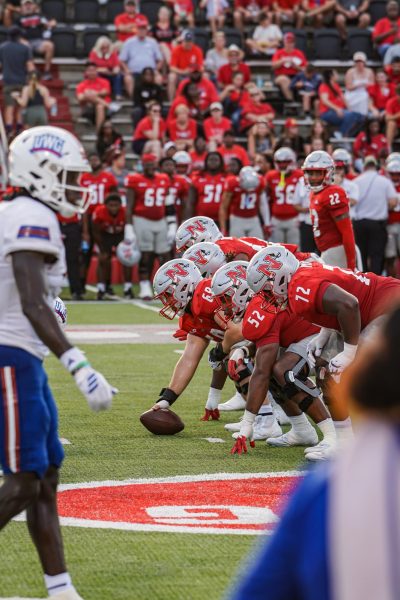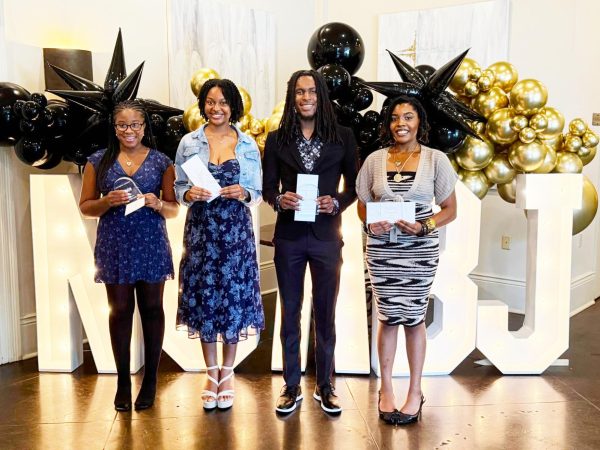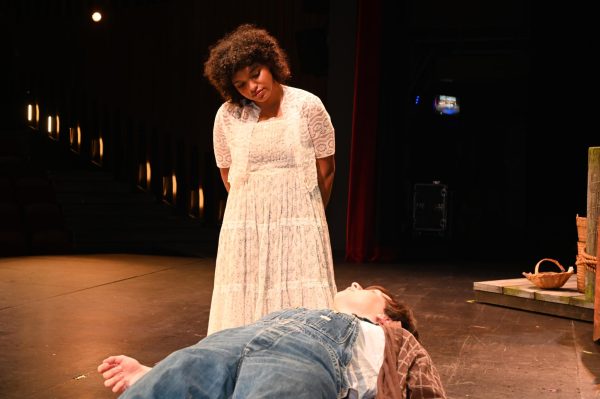Aimee Hollander introduces interactive learning methods
Photo by: Caroline Callais
Dr. Aimee Hollander guides her biology 106 class through an activity where they are required to discuss one topic they fully understand and one topic they are still rusty on from their current chapter.
Biology is no bore for one professor who recently earned an award for incorporating active learning techniques in the classroom.
The American Society for Microbiology awarded Aimee Hollander, assistant professor of biology, for her game “Guess that Microbe” which engages her students in class discussions under the guide of a game show.
The activity requires students to present a case study to the class and for the remainder of the time class teams attempt to guess what microbe is being described in that particular case study.
Hollander said, “Asking a 32-year-old man in class to act like a 5-year-old in the pediatrician’s office can be pretty funny sometimes.”
Hollander applied for a grant to attend the meeting of microbiology undergraduate educators. Their discussion centered around sharing innovative classroom techniques to engage biology majors and non-majors alike. Hollander shared that this becomes increasingly difficult when there is a list of prescribed concepts students have to learn. It also becomes a matter of time management to both complete the course material and keep students actively engaged.
At the meeting, Hollander also shared with her colleagues that she requires her molecular biology class to keep a blog about various concepts and topics covered in class.
She said, “This practice of communicating difficult subject matter to the general public forces my students not only to know that information but also to understand it on a level to be able to explain it to someone with, for example, a high school degree.”
Hollander referenced Bloom’s taxonomy, a theory about learning, when she said that she finds importance in students being able to learn at a level where they are creating, synthesizing and evaluating their own ideas and hypotheses. Based on this theory, she believes this better enables them to remember what they need to know for an exam.
“Whenever my students take an exam, I always joke with them that I hope they hear my voice in their brain telling them crazy stories and analogies to help them remember these concepts,” Hollander said.
She said, “I think students don’t realize that we feed a lot off of their energy.”
For this reason, Hollander strives to create a level of enthusiasm with an interactive classroom.
Her ultimate goal is centered around her students and their success in her classes but she also hopes to be able to collect data on her techniques and publish it for other educators to implement at their institutions.
In an effort to more efficiently improve the University she said, “I would really like to see some formal faculty development on campus where we can share our own ideas with each other and try them out in each other classrooms.”
“I call my ideas crazy because people usually look at me funny when I first introduce them, but they work,” Hollander said. “This isn’t just so my students learn what they need to know to get through classes but also enjoy their time while they’re learning it.”
Her evaluations confirm the effectiveness of her techniques to both engage and entertain students.







